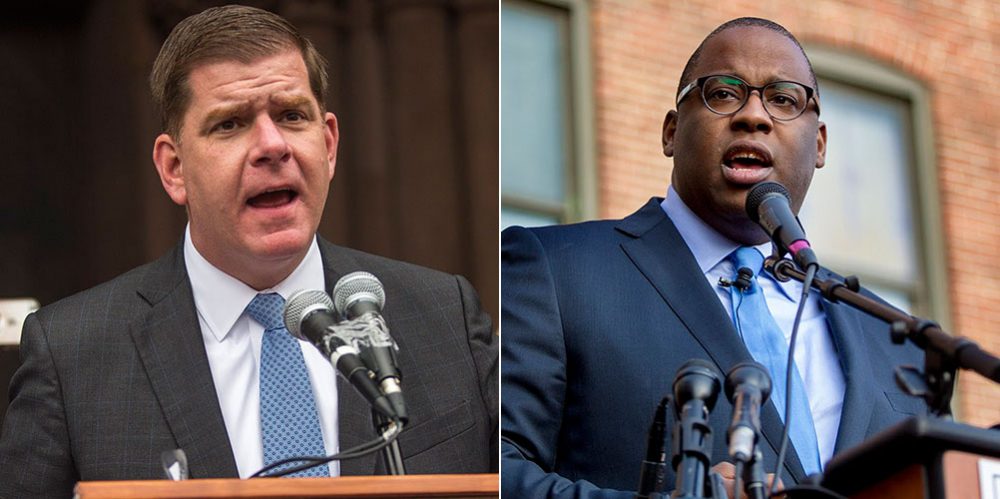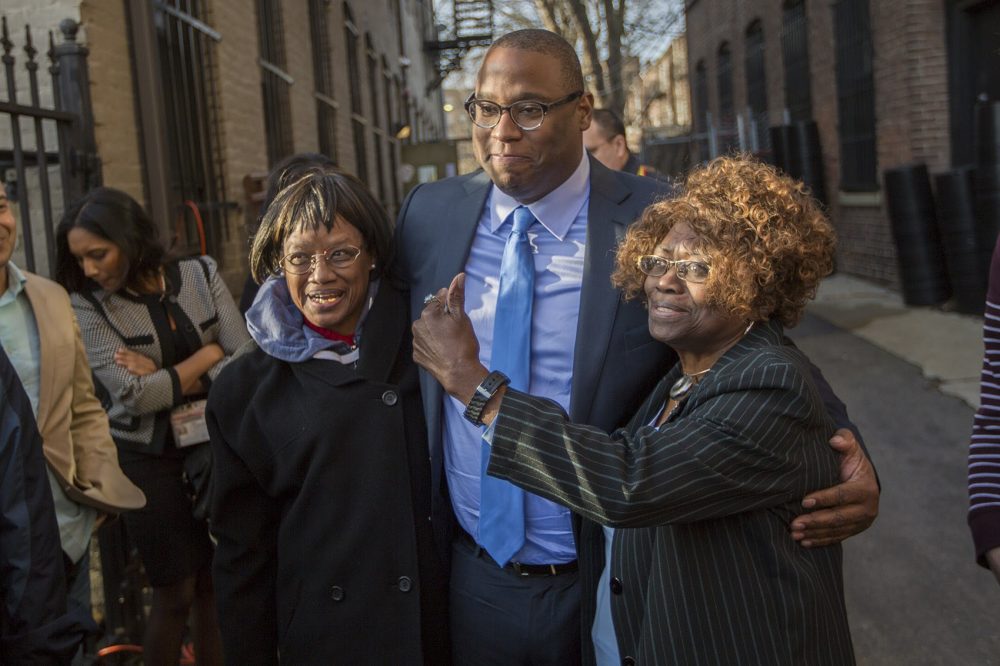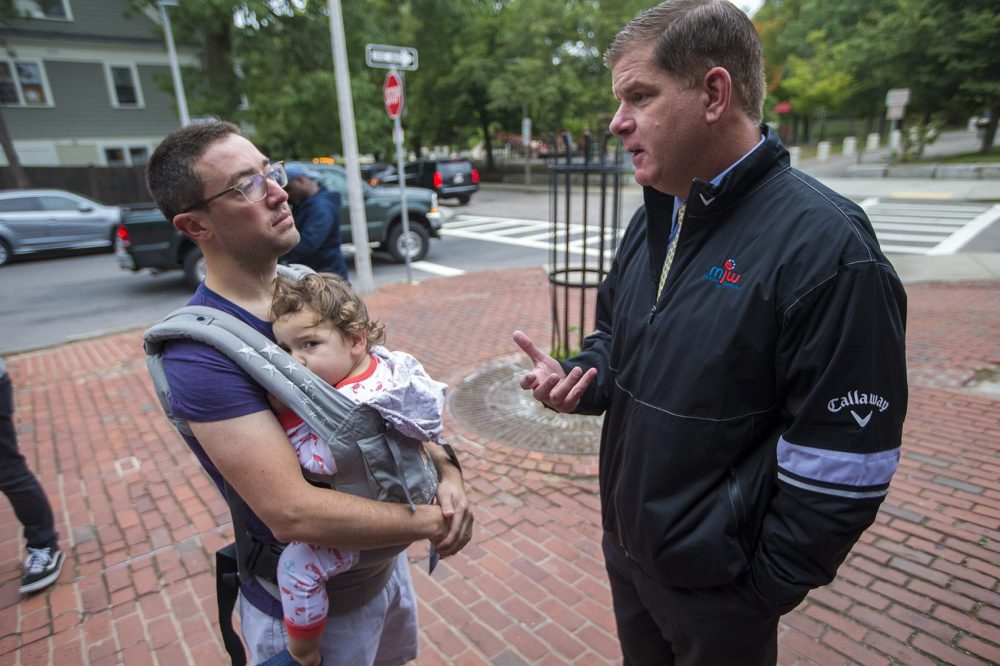Advertisement
Debate Over Development At Center Of Boston Mayoral Campaigns

A supporter of Boston City Councilor Tito Jackson stops his Prius outside the campaign office to pick up a lawn sign. Supporters salute Jackson as they walk by, honk horns as they drive by, and even stop in for a picture.
The leading challenger to Mayor Marty Walsh in next week's preliminary election, Jackson says Boston's leaders need to be thinking about people, not just buildings. He says the Walsh administration has lost its way.
"When it comes down to it they're not fighting for the people," Jackson said. "What we see is developers and corporate entities getting all that they want, and the communities having the door shut and their back turned to them."
Jackson says from Mattapan to East Boston, the city is facing a level of displacement it's never seen before. It's an issue that's central to the campaigns of the four candidates — all men, all Democrats — seeking to become Boston's next mayor.

Jackson wants to do away with the recently re-branded Boston Redevelopment Authority, now called the Boston Planning and Development Agency. He says he wants to give city residents power to decide what gets built.
"The issue is, who are you building for? That’s the real question," he said. "Fifty percent of people in Boston make $35,000 or less. We're in the city that has the highest income inequality."
Jackson says the city is flush with money from the taxes paid by recently built developments. In his first four years as mayor, he says he'd use some of that money to build 1,000 units that are affordable to own. He'd also increase the city's inclusionary development policy, making developers build more affordable housing than currently required.
Development is also central to Walsh's re-election campaign. In his first year in office, the mayor launched a plan for more housing for the city's growing population. He proposed 53,000 new units by 2030, and he says builders are on track to make that happen.
Advertisement
But the mayor says he wants a second term to follow through with that effort and others.
"We have a lot more work to do when it comes to creating opportunities for jobs, for people," Walsh said. "When it comes to creating better schools, when it comes to doing what we have to do, we still have a long way to go."
In addition to building more subsidized housing, Walsh says it's important to create opportunities for people to increase wealth — in part by attracting large companies to the city.
"If we get a company like Amazon that comes into the city of Boston we're talking about 50,000 middle class jobs," he said. "And we want to help build wealth. It's not all about creating housing for poor people. It's about how do we create wealth for those folks."

The two lesser known mayoral candidates say development is changing the face of the city, and they want to be sure development is done right.
If war chests are an indicator of political outcomes, Walsh is at a major advantage. Campaign finance records from September show Walsh out-raised and outspent Jackson by a factor of roughly 5 to 1.
Whoever goes up against Walsh in the general election in November will also have to overcome to power of incumbency. Boston's last mayor, Tom Menino, was elected five times in a row, serving for 20 years. Before that, Ray Flynn was elected three times, and Kevin White was elected four times.
The other two candidates on Tuesday's ballot are both Democrats from East Boston. Sixty-nine-year-old Joe Wiley works in customer service at an insurance company. He identifies as an avid reader and admirer of Franklin Delano Roosevelt and the Kennedys. He tried to get on the ballot in 2009 but failed to get enough signatures.
Wiley says he worries Boston is losing its economic and cultural diversity.
"It's wrong that people who have historically lived in neighborhoods, especially neighborhoods that should've had a strong ethnic character, that all that is being destroyed," Wiley said. "We don't want the entire city to look like Wellesley."
Candidate Robert Cappucci, a former Boston police officer and former school committee member, is calling for a moratorium on all development until a more people-centric permitting process is in place.
"In my administration the people have to come first," Cappucci said. "I want the citizens, the residents, to have first input, and then everyone's comfortable whether the project gets a yay or nay."
In the lead up to the general election on Nov. 7, the top two vote-getters in Tuesday's preliminary election are likely to continue debating development — and what the future Boston should look like.
This segment aired on September 22, 2017.
